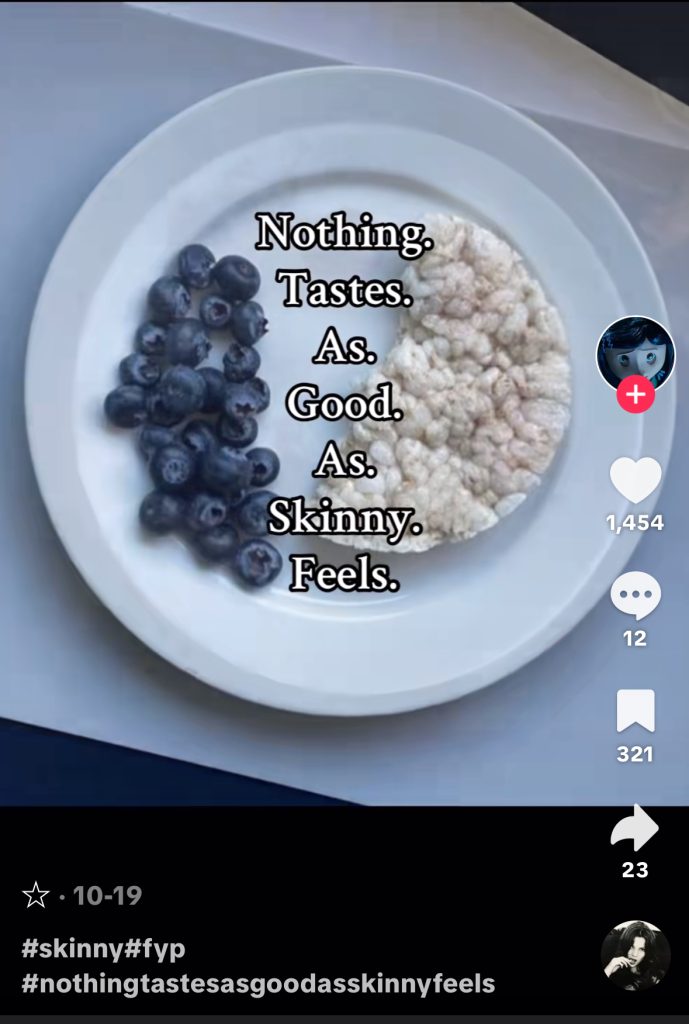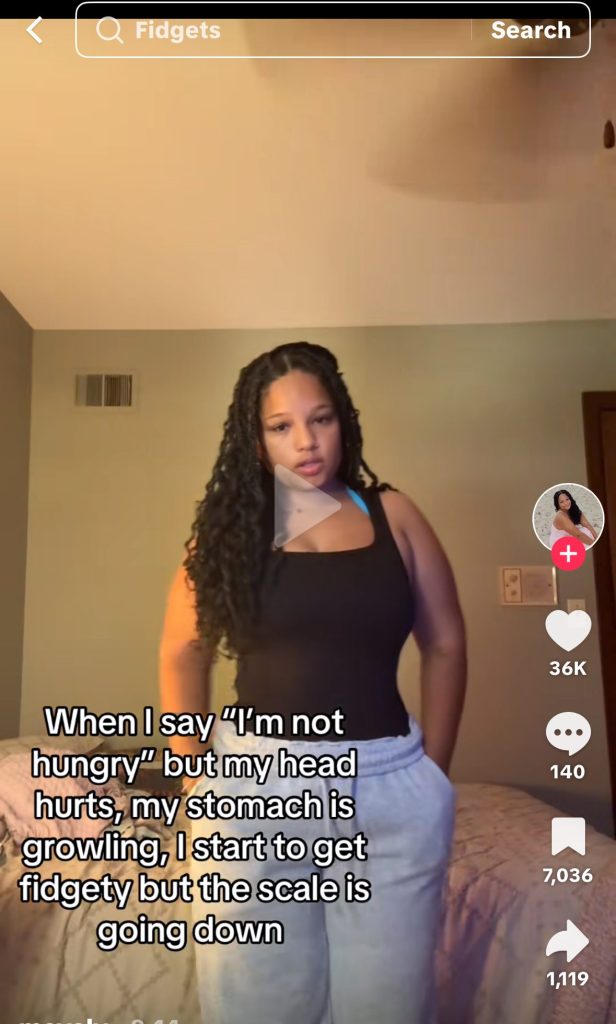Beauty used to be something we found in ourselves. Now, it’s something we look for through screens, filters and algorithms that convince us we are never enough.
One scroll on my TikTok For You Page sucks me into an endless cycle of “gymtok” or “healthytok.” I sit and compare myself to every individual person, wondering how long it would take me to look like that, or if I could achieve that body if I ate like her.
Living with social media, especially Generation Z, faces new standards for what women’s bodies should look like. You’re not considered pretty unless the size of your waist fits a size 00. You have to have glowing skin all the time to be considered attractive. The message is clear — you’re only beautiful if you fit that mold.
It’s heartbreaking that we live in a society where women can’t even feel comfortable in their own skin because of the unrealistic image of perfection that is drawn out for us.
From someone who loves going to the gym, I’m not saying exercise and eating healthy is what’s promoting unhealthy beauty standards; it’s what these content creators are saying alongside these videos.
When I see a video captioned “Want to look like this?” designed to get viewers to stay, read how they can get abs like Jenna Johnson from “Dancing with the Stars,” or say, “Eat like this and you can look like me,” that’s where the unhealthy standards are born; on a tiny screen constantly in front of our faces.
Even worse, its not only the creators. The comment sections can be just as harmful. These comments read, “I’m not eating today” or “I’m not hungry anymore,” and the people saying these things are already beautiful.
A few examples of comments and content creation seen on a daily basis.
Some creators don’t even care to remind people that they are beautiful for who they are — they just want the likes and shares.
What makes it worse is men in the comments who believe they have a right to decide what’s considered attractive. They’ll shame women for gaining weight, for losing it, for wearing makeup, or not enough makeup. No matter what a women does, someone always has something to say.
Not only do influencers promote unhealthy ways of living, most of them are doing it for a check. In 2022, a study found that 97% of TikToks promoting weight loss products had no scientific evidence behind them. Most are just promoting false hope packaged as “health.” It’s easy to promote unhealthy living, especially when you have a mass following.
TikTok plays a key role in these unrealistic standards. With just one tap, you can turn on the beauty filter in your videos. After using the app for 11 years, I’ve caught myself thinking I don’t look good unless the filter is on.
Body dysmorphia has taken over many women’s minds, including my own. Body dysmorphia is a mental health condition where women and men become excessively concerned about flaws in their appearance. These so-called “flaws” that we see within ourselves typically go unnoticed by others.
If you’re struggling with body dysmorphia, we have to keep reminding ourselves that we only get to live life once. Every day, I remind myself to be grateful for a healthy body that gets me out of bed and carries me through the day. Everyone has hard days, but surrounding yourself with positivity can make a real difference.
It is important to remember that many people deal with these thoughts, and you are not alone in a world full of unfair beauty standards.
Growing up in Utah, I felt like I was already set to a high beauty standard. My parents always reminded me that I’m beautiful and never to compare myself to others because everyone was born to be different. Some kids didn’t get to hear those reassuring words growing up, and those missed affirmations are feeding into the media.
People forget that if we lived in a society where everyone looked the same, it would be a really boring world to live in.
It’s a never ending cycle of comparison, but we can end it. Take breaks from apps that drain your mental health. Unfollow accounts that make you compare. Most importantly, remind yourself every day that true beauty comes from within.








